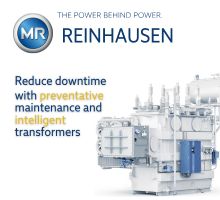AISI: Repeal of Key Provisions in Tax Reform Would Raise Tax Rate on Industry
01/20/2014 - The American Iron and Steel Institute (AISI) submitted comments to the Senate Finance Committee highlighting industry concerns with proposals in the tax reform discussion draft released last month.
Thomas J. Gibson, president and CEO of the AISI, reiterated the steel industry’s concerns with proposals in the tax reform discussion draft released last month by the Senate Finance Committee staff which recommends repeal of the current accelerated depreciation system (Modified Accelerated Cost Recovery System, or MACRS), the Last-In-First-Out (LIFO) accounting method, and other tax provisions supported by the steel industry and other U.S. manufacturers.
In comments submitted to the Senate Finance Committee on 17 January 2014, Gibson said, “…We are very concerned that many of the proposals put forth in the cost recovery and accounting staff discussion draft will ultimately raise the effective tax rate on U.S. manufacturers by repealing longstanding tax incentives for investment in capital intensive industries. This will trigger an increase in the cost of capital, create a disincentive for new investment and ultimately slow economic growth.”
In particular, Gibson said that for capital intensive industries, like steel, whose investments require significant cash expenditures and take a number of years to yield a return, accelerated depreciation “is a cash flow issue.” By providing a faster return on capital investment, accelerated depreciation often provides the cash flow necessary for a company to decide to undertake certain new investments that might not go forward otherwise. The draft also proposes a repeal of LIFO which Gibson said would cause a company to generate increased taxable income as if it had sold part of its inventory even though no real profit was made, triggering a retroactive tax increase and penalizing companies for using an accepted accounting practice.
AISI’s comments also addressed a number of other tax code provisions that are important to the steel industry and manufacturers more broadly, some of which were also targeted for repeal in the discussion draft.
Gibson concluded, “A redistribution of wealth from manufacturers to other sectors of the economy will not result in the pro-growth, job-creation, tax reform Members of Congress are seeking. We encourage [the Committee] to look at tax reform through the lens of what types of reforms and policies will trigger substantial new investments in the U.S., which will result in increased job creation and economic growth.”
A complete copy of AISI’s comments to the Committee can be found here.
In comments submitted to the Senate Finance Committee on 17 January 2014, Gibson said, “…We are very concerned that many of the proposals put forth in the cost recovery and accounting staff discussion draft will ultimately raise the effective tax rate on U.S. manufacturers by repealing longstanding tax incentives for investment in capital intensive industries. This will trigger an increase in the cost of capital, create a disincentive for new investment and ultimately slow economic growth.”
In particular, Gibson said that for capital intensive industries, like steel, whose investments require significant cash expenditures and take a number of years to yield a return, accelerated depreciation “is a cash flow issue.” By providing a faster return on capital investment, accelerated depreciation often provides the cash flow necessary for a company to decide to undertake certain new investments that might not go forward otherwise. The draft also proposes a repeal of LIFO which Gibson said would cause a company to generate increased taxable income as if it had sold part of its inventory even though no real profit was made, triggering a retroactive tax increase and penalizing companies for using an accepted accounting practice.
AISI’s comments also addressed a number of other tax code provisions that are important to the steel industry and manufacturers more broadly, some of which were also targeted for repeal in the discussion draft.
Gibson concluded, “A redistribution of wealth from manufacturers to other sectors of the economy will not result in the pro-growth, job-creation, tax reform Members of Congress are seeking. We encourage [the Committee] to look at tax reform through the lens of what types of reforms and policies will trigger substantial new investments in the U.S., which will result in increased job creation and economic growth.”
A complete copy of AISI’s comments to the Committee can be found here.



-(1)-Reinhausen-(1).jpg?lang=en-US&ext=.jpg)






